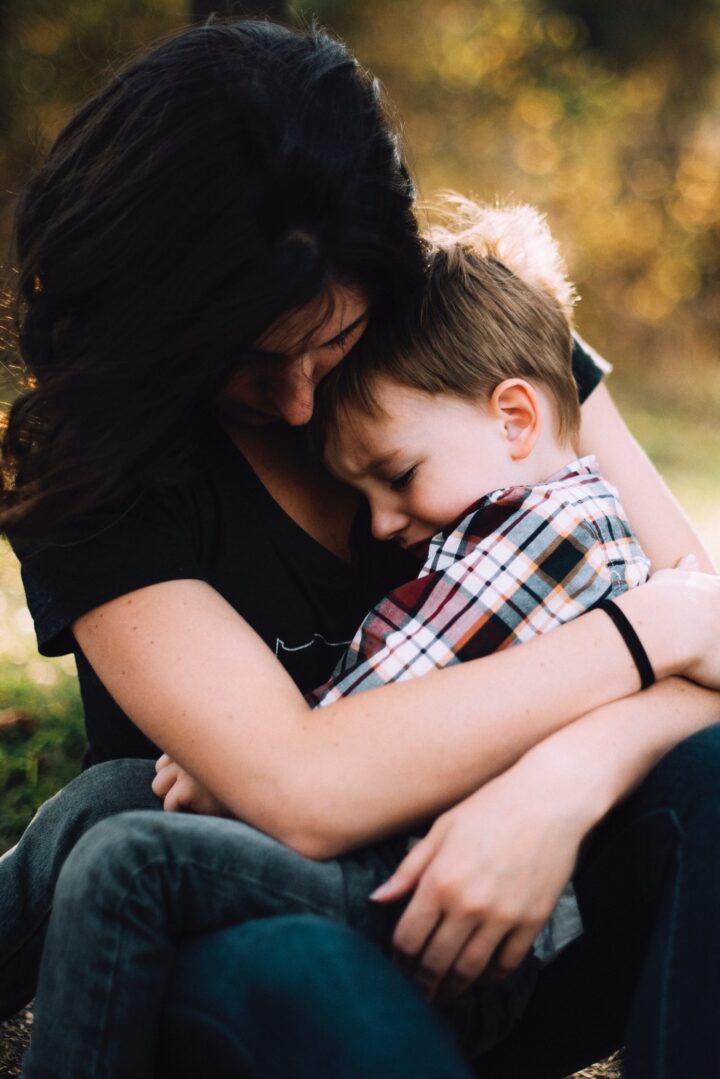Are you weaponizing your child?
“I would never withhold my child from the other parent.”
“I would never put my child between a family member and me.”
“I would never say negative things about my ex in front of my child.”
“I would never use my child as a weapon to hurt my ex or a family member.”
When I hear these statements, I can’t help but think, “Oh… you are going to use your child as a weapon against your ex or another family member you’re upset with.” It’s not true 100% of the time, but I’ve found that the people who claim this the loudest seem to be the quickest to violate their own rule.
Parents who don’t try to withhold their children generally haven’t had these thoughts. Or, if they have, they immediately realize they’re using their children to hurt the other person rather than having a legitimate concern about the emotional or physical safety of the child because of something that person did.
Are there times when children are not safe with an ex or family member? Absolutely. But you not agreeing on a topic unrelated to the child is not that reason. (Please be reasonable in your interpretation of this content – if someone refuses to put a child in a car seat or is unsafe with the child is different than if you have a disagreement or simply don’t like the other person).
What often is happening here is that the withholding parent is not considering their child’s relationship with the other parent or family member. In breakups, it’s not just the other parent who is often alienated; it’s their entire family. How is this healthy for your child? It’s not. Your child has a relationship with each person. And when you choose to withhold because of your own “reasons” that are not directly related to the child, you are hurting your child. You are cutting off a relationship and another caring person in your child’s life. Children benefit from many caring and loving relationships in their lives. Your child does not understand why they suddenly don’t get to see their daddy because you’ve decided you don’t want him around. Or the child’s aunt, who is your ex’s sister, because your ex is being rude to you. And going around your ex (who is not a safety concern, but you just no longer like) directly to their family member is not the answer either. That’s parental alienation, and it harms your child.
When I divorced, my now ex-mother-in-law lived in another state, which was my home state. I would travel with my children to see my family. I always ensured they had time with their grandmother, including me dropping them off, picking them up, or making arrangements for others to do so. Although she was my ex-mother-in-law, she was still their grandmother. That relationship did not change. And I am so thankful for this approach. My kids love their grandmother, and she loves them. I can’t even imagine cutting her from their lives because I was no longer married to her son. Her son and I divorced. Our children did not divorce.
If you don’t want your children to have time with their other parent or a family member, ask yourself these questions:
What specifically did the other person do to the child that makes me have a safety concern for my child? For example, the other person allowed the small child to play with knives.
Is this desire to withhold my child because I’m mad at the other person for something they did or said to me that had nothing to do with the child? For example, my ex yelled at me when we were fighting, and the child was not present.
Is this concern I have legitimate based on recent past behavior of the person (not some dumb thing they did ten years ago)? For example: While my ex was in college 15 years ago, they drove drunk but have never since then.
Am I creating scenarios in my head about something that could happen in the future based on my feelings about the person? For example, I’m afraid they will ___________. Anything can happen in the future, even when your child is in your care.
Finally, ask a trusted third party if your concerns are legitimate. Not your mother, who hates your ex, or your best friend. Someone who truly loves both of you and can be objective. If you don’t have such a person, find a professional counselor specializing in children. And be fair, that person is only hearing your side. If you want to be a balanced parent, you should also present the other parent or family member’s side as best you can, which will likely be sharing things that other person has said to you.
Children benefit from as many loving adults in their lives as possible. A healthy parent wants to utilize all the responsible family members available. Whether you like them and are happy with them or not.
“Not liking others is not a sin or virtue, it’s like taste for food. It’s okay. However, whether you like them or not you must wish the best for them.” C.S. Lewis ~ Mere Christianity
Reminder: if your ex or a family member has been physically or emotionally abusive to the child, this article does not apply.


